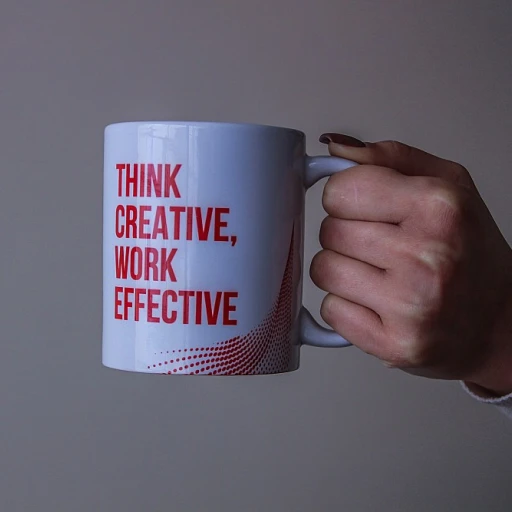Understanding the HR Role
Grasping the Fundamentals of the HR Role
In the ever-evolving world of human resources, securing a position requires more than just a polished resume. It begins with a deep understanding of the role you're aspiring to fill. HR professionals are the backbone of any organization, playing pivotal roles in recruitment, training, employee relations, and more. Knowing exactly what an HR role entails sets you on a path to a successful interview. Before stepping into an interview, educate yourself on the specific HR functions relevant to the position. From talent acquisition to strategic planning, the duties may vary, so it's vital to recognize what the role demands. Additionally, the HR sector is witnessing significant changes, with technology and employee wellness becoming central, thus, your knowledge of these trends can make you stand out. Further insight into effectively preparing for HR interviews can be found in our comprehensive guide, furnishing you with reliable strategies to make an impressive impact. Stay tuned as we delve into the next stages of the interview process, from tackling common questions to demonstrating your alignment with company culture, covering every facet essential to mastering your HR interview experience.Preparing for Common Interview Questions
Preparing for the Most Asked Questions
When getting ready for an HR interview, it's crucial to understand the typical questions that are likely to come your way. Interviewers often have a set of common questions that are designed to gauge your knowledge and fit for the role. These questions may range from general inquiries about your understanding of HR functions to specific questions about your past experiences and achievements. Common questions such as “Why did you choose HR as your career path?” or “How do you handle conflict in the workplace?” are often asked to assess your motivation and problem-solving abilities. It’s important to provide clear, concise, and honest answers that showcase your passion for HR and your capability to handle challenging situations.Practicing Makes Perfect
Rehearse potential answers to interview questions, but don’t memorize them verbatim. Interviews are dynamic, and your responses should sound natural and spontaneous. Practice with a friend or mentor who can offer constructive feedback. This will help you become more comfortable discussing your background and experiences. Additionally, consider recording your practice sessions to review your body language and tone of voice. Utilizing the STAR method (Situation, Task, Action, Result) can be particularly effective when formulating answers to behavioral questions, a topic covered further in this guide. By structuring your responses with the STAR method, you ensure that your answers are organized and comprehensive, providing the interviewer with the information they need to evaluate your abilities.Staying Informed
A well-prepared candidate should also stay informed about current trends and issues within the HR industry. This not only demonstrates your enthusiasm for the field but also shows your ability to stay up-to-date with ongoing changes and advancements in HR practices. Review recent HR news articles, websites, and industry reports. Be prepared to speak on topics such as the latest HR technologies, employee engagement strategies, or the importance of diversity and inclusion in the workplace. Having this knowledge can differentiate you from other candidates and highlight your dedication to continuous learning in the ever-evolving world of HR.Showcasing Your Skills and Experience
Highlighting Your Unique HR Strengths
When you're embarking on an interview journey for an HR role, showcasing your unique strengths and experiences is crucial. HR is a field where each professional brings distinct skills and perspectives to the table, and it's important to communicate these during the interview process. First, focus on illustrating how your previous experiences have equipped you with a solid foundation in HR practices. Whether you're adept at talent acquisition, employee relations, or benefits management, be specific about your contributions and achievements. Use concrete examples to highlight situations where you've implemented impactful HR strategies. Secondly, don't shy away from discussing any specialized skills you possess. Are you proficient in a particular HR software? Do you have a knack for conflict resolution or team-building? Identifying and emphasizing these attributes during your interview can set you apart from other candidates. Moreover, it's beneficial to reflect on your career trajectory. What inspired your journey into HR? What lessons have you learned along the way? Sharing your story can provide insights into your passion and drive as an HR professional, making your application stand out. For comprehensive insights on preparing effectively for interviews, including tips on showcasing these skills, you can refer to our complete guide on essential questions for HR interviews. This resource offers detailed strategies to ensure your skills and experiences shine through during your interview.Navigating Behavioral and Situational Questions
{"result": "Addressing Real-Life Scenarios in HR Interviews
\nNavigating behavioral and situational questions in an HR interview can feel daunting, yet they present a prime opportunity to demonstrate your problem-solving abilities and experience. These questions are designed to reveal how your past behaviors have equipped you to handle potential challenges within the HR realm.\n\nTo excel in this area, it's essential to draw from real-life examples where you've faced similar situations. For instance, you might be asked how you've managed conflict within a team or a time when you had to make a difficult decision. When responding, utilize the STAR method (Situation, Task, Action, Result) to succinctly outline the scenario and showcase your approach to problem-solving. Start by describing the context, then move on to elucidate what was required of you, the actions you took, and finally, the results of those actions.\n\nWhat sets a successful candidate apart is not just their ability to "answer the question" but their aptitude for reflection and learning. Employers want to see that you can critically evaluate past experiences, recognizing what went well and identifying areas for improvement. Moreover, be prepared to discuss how your actions align with [aligning your values with company goals] and overall company culture, as this is a key component hiring managers are looking to evaluate.\n\nFinally, remember that confidence is crucial. Portraying yourself as a competent and proactive problem-solver tells your potential employers that you're not just someone who waits for problems to occur but rather anticipates and acts accordingly. \n"}Aligning with Company Culture and Values
Embracing the Company's DNA: Cultural and Value Alignment
In the process of securing an HR position, aligning with a company's culture and values can significantly influence your chances of success. This topic delves into the multifaceted landscape of company culture and how your alignment can be a game-changer in interviews. Understanding company culture begins with extensive research. Gain insights into their values, work environment, and employee engagement initiatives. This goes beyond knowing the company's mission statement – immerse yourself in their corporate ethos. You should be able to articulate why the company’s vision resonates with your personal and professional ethos. When discussing your experiences, weave in narratives that reflect an inherent compatibility with the company's cultural values. Perhaps you've consistently championed diversity and inclusion, which is a core value of the organization. Or, you might have demonstrated a strong commitment to ethical practices in previous roles, aligning seamlessly with the company's reputation for integrity. Highlight these synergies to create a compelling case for your cultural fit. Moreover, illustrate your adaptability to different workplace environments. Share examples of when you transitioned seamlessly into a new corporate culture, or when you contributed positively to shaping it. This not only shows your ability to adapt but also positions you as a proactive force in maintaining or evolving the company culture. Remember that interviews are a two-way street. While showcasing your compatibility, assess whether the company's culture genuinely aligns with your values and career aspirations. A mutual cultural fit ensures a more fulfilling professional relationship and enhances your overall job satisfaction. Aligning with a company's culture is just one of many facets of HR interviews. Consider integrating lessons learned from earlier topics on common interview questions and showcasing your skills to further strengthen your approach to HR interviews. By focusing on these elements, you'll be well-prepared to make a strong impression that demonstrates both your professional qualifications and your cultural alignment.The Importance of Soft Skills in HR
Emphasizing Emotional Intelligence
When interviewing for HR roles, it's crucial to highlight your soft skills, which are often the backbone of effective human resources management. Emotional intelligence, for instance, is a key component that allows HR professionals to navigate complex interpersonal dynamics and foster a positive workplace environment. Demonstrating your ability to empathize with employees, manage conflicts, and communicate effectively can set you apart from other candidates.
Communication and Conflict Resolution
In previous sections, we discussed the importance of showcasing your skills and experience, as well as navigating behavioral and situational questions. These areas often intersect with soft skills, particularly in communication and conflict resolution. During your interview, be prepared to provide examples of how you've successfully mediated disputes or facilitated open communication channels within a team. This not only shows your capability but also your commitment to maintaining a harmonious work environment.
Adaptability and Problem-Solving
HR roles require a high degree of adaptability, as the landscape of workplace dynamics is constantly evolving. Highlight instances where you've demonstrated flexibility and innovative problem-solving skills. Whether it's adapting to new HR technologies or responding to unexpected challenges, your ability to remain composed and resourceful is a testament to your suitability for the role.
Building Trust and Rapport
Finally, building trust and rapport is an indispensable soft skill in HR. Your ability to connect with employees and management alike is essential for creating an inclusive and supportive work environment. During your interview, discuss how you've fostered trust in previous roles, perhaps by implementing transparent policies or providing consistent support to your team. This will underscore your capability to align with company culture and values, a topic we've explored in detail earlier.








